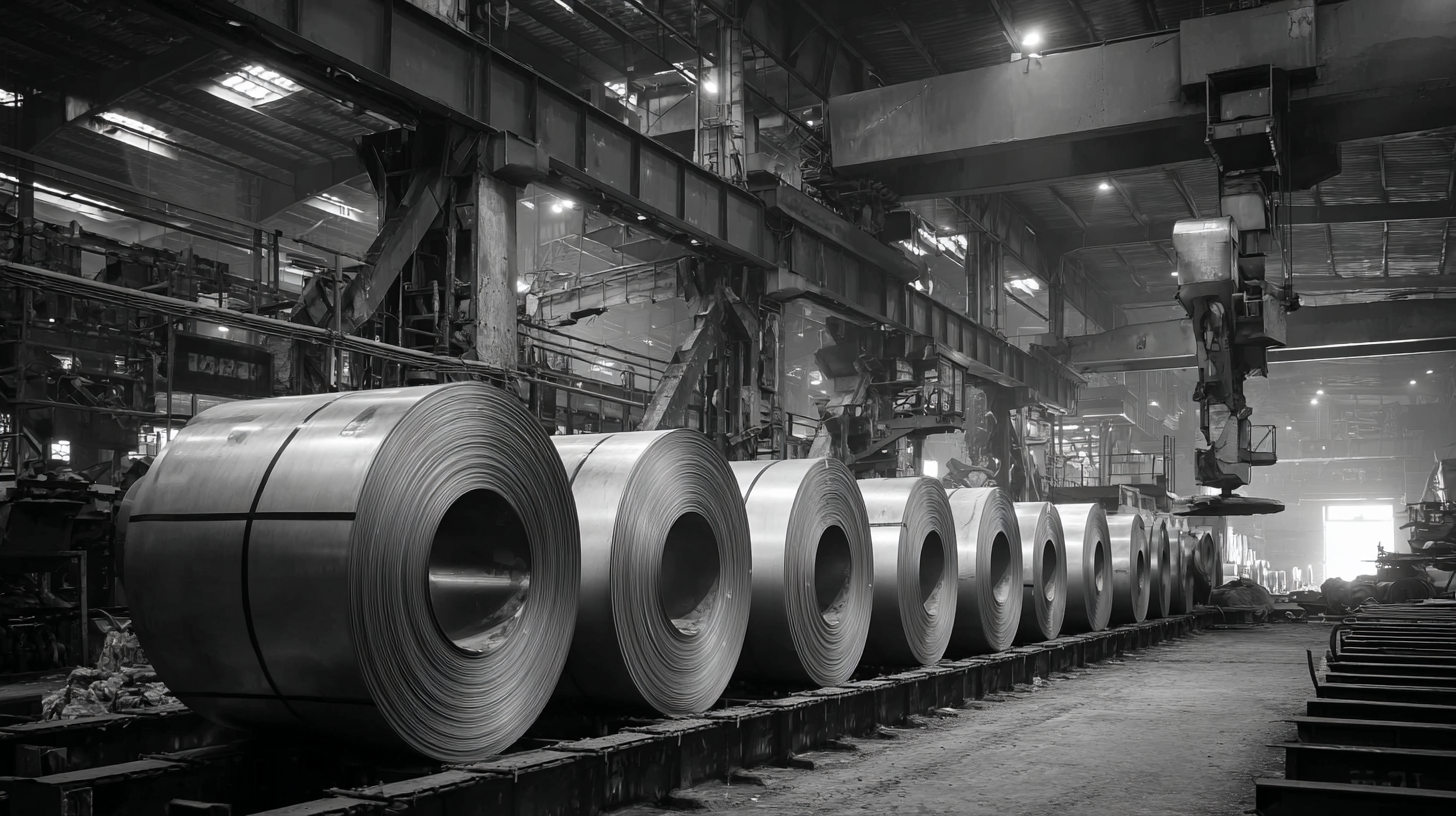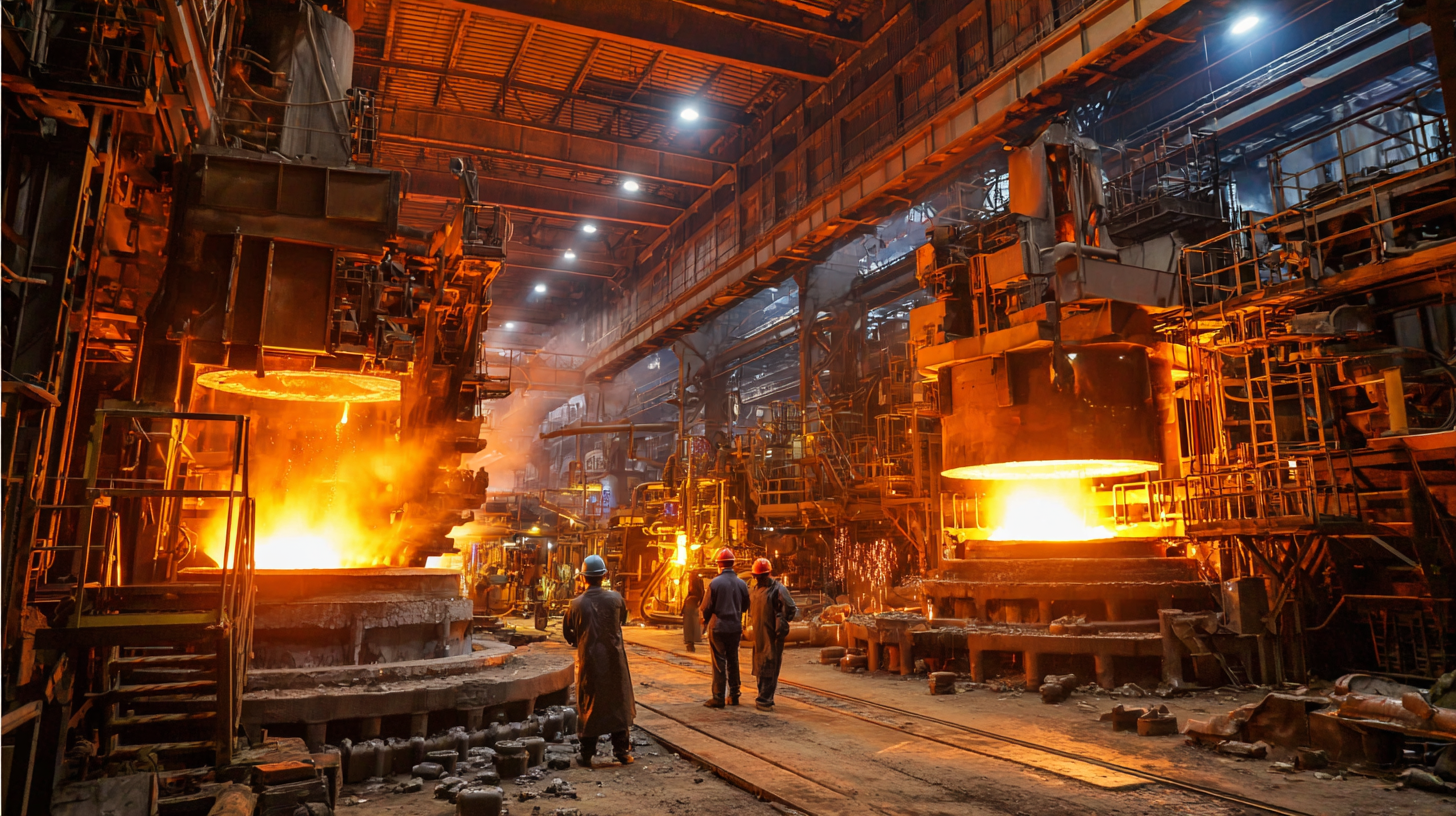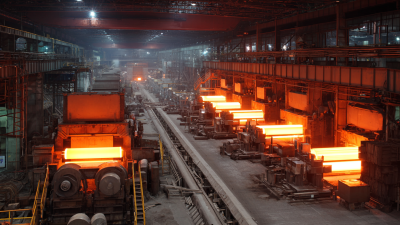Leave Your Message
As the world increasingly shifts towards sustainable solutions and green technology, Silicon Metal Producers are emerging as pivotal players in this transformation. Their role is critical in the development of advanced materials that facilitate renewable energy and energy-efficient products. From solar panels to electric vehicles, the demand for silicon and its derivatives has surged, prompting these producers to innovate and enhance their production processes. This introduction serves as a gateway to understanding the intricate relationship between silicon metal production and the broader quest for environmental sustainability. By exploring the methodologies, challenges, and future prospects of Silicon Metal Producers, we can uncover how their efforts are unlocking new possibilities for a greener future, ultimately shaping the landscape of technology that aligns with ecological priorities.

 Silicon metal plays a pivotal role in advancing renewable energy solutions, acting as a cornerstone for various green technologies. As the demand for clean energy sources escalates, silicon's unique properties make it an ideal candidate for a multitude of applications. It is crucial in the production of solar panels, where it serves as a key component in photovoltaic cells, converting sunlight into electricity efficiently. The ongoing improvements in solar technology hinge on the availability of high-quality silicon, driving producers to adopt sustainable practices and innovative extraction methods to meet an ever-growing market.
Silicon metal plays a pivotal role in advancing renewable energy solutions, acting as a cornerstone for various green technologies. As the demand for clean energy sources escalates, silicon's unique properties make it an ideal candidate for a multitude of applications. It is crucial in the production of solar panels, where it serves as a key component in photovoltaic cells, converting sunlight into electricity efficiently. The ongoing improvements in solar technology hinge on the availability of high-quality silicon, driving producers to adopt sustainable practices and innovative extraction methods to meet an ever-growing market.
Moreover, silicon's applications extend beyond solar energy. It is essential in the manufacturing of lithium-ion batteries, which power electric vehicles and energy storage systems. With the global push towards electrifying transportation and enhancing grid stability, silicon's contribution to battery technology cannot be overstated. Producers are now exploring new silicon alloys and composite materials to improve efficiency and energy density, further solidifying silicon's fundamental role in the transition towards a greener, more sustainable future. As industries evolve, the demand for eco-friendly silicon production methods will only increase, underscoring its importance in the renewable energy landscape.
Silicon metal plays a crucial role in the advancement of sustainable technologies, particularly in the context of semiconductor manufacturing and renewable energy solutions. Innovations in silicon metal production are essential for enhancing the energy efficiency of manufacturing processes, as evidenced by recent studies that emphasize the need for greener practices in semiconductor R&D. The push towards reducing carbon footprints has prompted companies to explore sustainable methods, with some estimates suggesting that improving processes could cut energy consumption by up to 30%.
Investment initiatives, such as those from various venture capital funds, are supporting startups focused on sustainable silicon production, indicating a significant shift in the industry. The funding secured by Swedish companies exemplifies the economic viability of green technologies, with projections indicating that the market for sustainable semiconductor solutions could reach billions in the next decade. As energy demands increase and industries seek to comply with carbon neutrality goals, innovations in silicon metal production will undoubtedly be at the forefront, shaping a cleaner and more efficient future for technologies critical to our net-zero ambitions.
Silicon metal is increasingly becoming integral to the development of electric vehicle (EV) batteries, particularly with the rise of silicon anode technology. Recent innovations have demonstrated that incorporating silicon can significantly enhance battery performance, leading to energy density improvements of up to 50%. Companies are now producing batteries that not only charge within 10 minutes but also boast a remarkable cycle life of 1200 charges. This leap in efficiency positions silicon anode batteries as a critical component in the transition to greener transportation technologies.

As the demand for more efficient energy storage solutions grows, silicon metal producers are playing a pivotal role in the automotive sector's shift toward electrification. The advancements in silicon-based technologies are transforming traction inverters, which are crucial for converting electricity to power EVs, thereby improving overall energy management. With key players exploring solid-state battery technologies projected for market introduction in the coming years, the innovative integration of silicon continues to shape the future of sustainable mobility, fostering an environment where electric vehicles can effectively meet both consumer needs and environmental standards.
Silicon metal, a pivotal component in green technology, plays a crucial role in the production of low-carbon aluminum and solar panels. The energy-intensive process of producing silicon metal consumes roughly 11-13 gigajoules per kilogram, raising concerns about its environmental impact. According to recent analyses, the increasing demand for silicon metal is driven by the transition to renewable energy sources, as industries look to decarbonize. The silicon metal industry is experiencing varied operating rates across different regions, which are influenced by local policies and resource availability. This dynamic market could create both opportunities and challenges as the push for greener solutions continues.
Tips: When considering sustainable materials for projects, prioritize silicon metal sourced from regions with lower carbon emissions and energy-efficient practices. Additionally, pay attention to the life cycle analysis of silicon products to understand their overall environmental footprint. Investing in advancements in extraction and production technologies can also lead to more eco-friendly outcomes in the silicon metal supply chain.
| Dimension | Data |
|---|---|
| Annual Production (tons) | 1,000,000 |
| CO2 Emissions (kg CO2/ton) | 2,000 |
| Water Usage (liters/ton) | 15,000 |
| Renewable Energy Usage (%) | 30 |
| Recycling Rate (%) | 45 |
| Investment in Green Technology (million $) | 250 |
| Projected Growth Rate (%) | 8 |
Silicon metal is carving out an essential role in the pursuit of carbon neutrality, particularly within the renewable energy sector. According to a report by the International Energy Agency, the global demand for silicon-based materials is projected to increase by over 5% annually through 2025. This surge is primarily driven by their application in solar panel production, where silicon serves as a crucial component in photovoltaic cells. With solar energy projected to become one of the leading sources of electricity worldwide, the contribution of silicon metal is increasingly significant in reducing carbon emissions from traditional energy sources.
Moreover, silicon metal's versatility extends beyond solar applications. It is also becoming indispensable in electric vehicle batteries and energy storage systems. The Global Data report highlights that the electric vehicle market alone is expected to double by 2025, significantly enhancing thermal efficiency and sustainability through silicon anodes. This shift towards silicon technology not only aids manufacturers in meeting stringent carbon reduction targets but also aligns with the broader global objective of achieving net-zero emissions. The intersection of silicon metal production and innovative green technologies is thus a pivotal factor in shaping a sustainable future.






